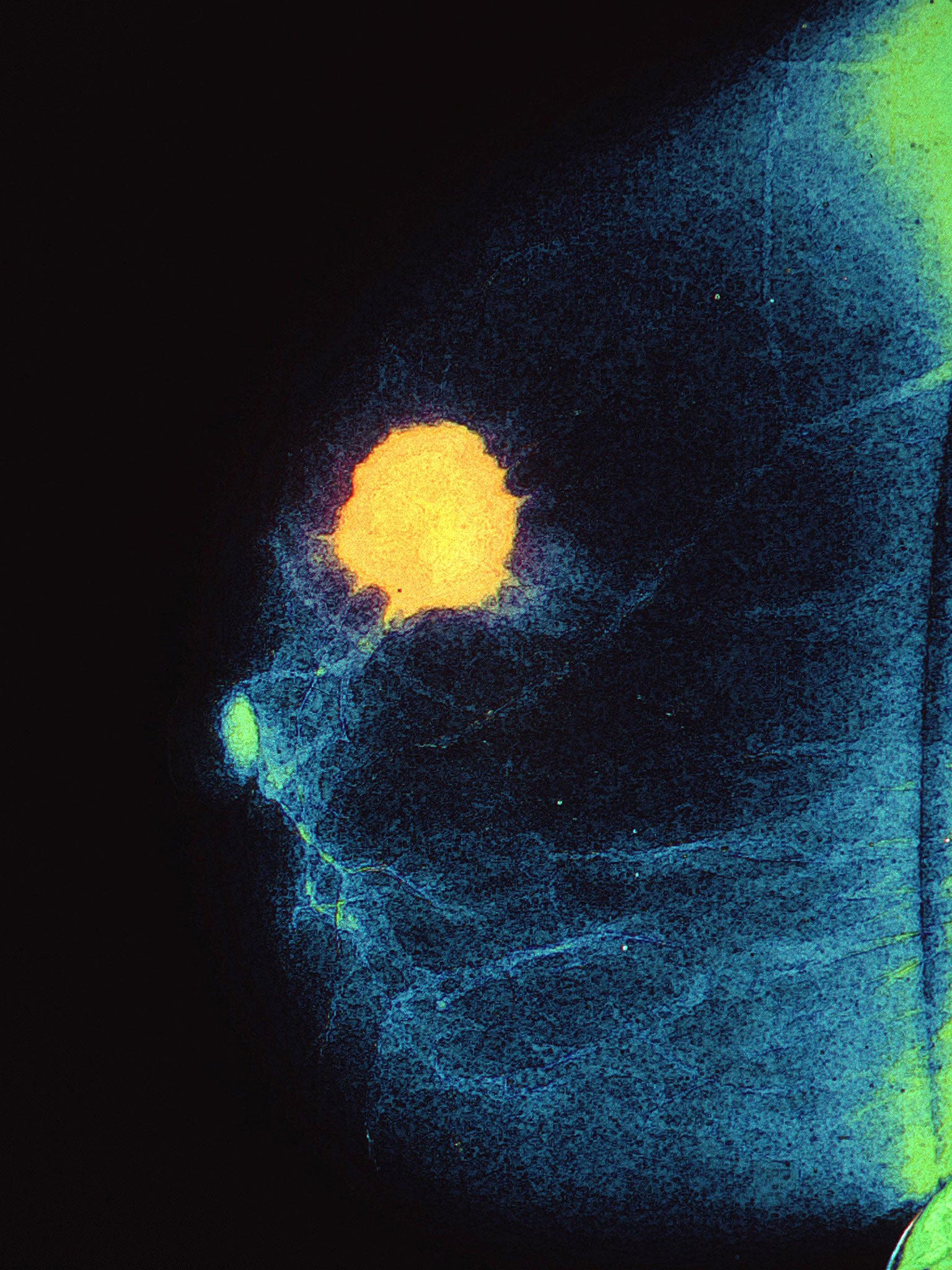700,000 face ‘hidden risk’ of breast cancer, warns charity
Clinical trials suggest that 8.3 per cent of women aged 47 to 75 in the UK have a high breast density

Your support helps us to tell the story
From reproductive rights to climate change to Big Tech, The Independent is on the ground when the story is developing. Whether it's investigating the financials of Elon Musk's pro-Trump PAC or producing our latest documentary, 'The A Word', which shines a light on the American women fighting for reproductive rights, we know how important it is to parse out the facts from the messaging.
At such a critical moment in US history, we need reporters on the ground. Your donation allows us to keep sending journalists to speak to both sides of the story.
The Independent is trusted by Americans across the entire political spectrum. And unlike many other quality news outlets, we choose not to lock Americans out of our reporting and analysis with paywalls. We believe quality journalism should be available to everyone, paid for by those who can afford it.
Your support makes all the difference.More than 700,000 women in the UK are living with a “hidden risk” of developing breast cancer, a charity has warned.
Women who are deemed to have a “high breast density” – which is more collagen and glandular tissue than fatty tissue – are at a significantly higher risk of developing breast cancer, the Breast Cancer Campaign (BCC) said. Breast density is currently assessed through mammography and other types of medical imaging, but not through touch, fuelling fears that thousands of women may be unaware they are at risk.
Clinical trials overseen by the charity suggest that 8.3 per cent of women aged 47 to 75 in the UK have a high breast density – some 721,187 women. According to the data, published today, females with the highest density are up to five times more likely to develop breast cancer than those with low levels.
Baroness Delyth Morgan, the charity’s chief executive, said: “The emerging evidence on risk factors such as breast density... must be taken into consideration.”
The research came as health officials were criticised for leaving a cheap breast-cancer drug “on the shelf” after experts estimated that 4,000 cases of the disease could be prevented every year if women were offered a wider range of preventative medication.
The National Institute for Health and Care Excellence recommends that women at moderate or high risk of breast cancer should be offered the chemoprevention drugs tamoxifen and raloxifene. But since the guidelines were drawn up, scientists have endorsed a new drug, anastrozole, which they believe can more than halve the rate of the disease in high-risk women.
Professor Tony Howell, of the breast cancer charity Genesis, said that it could take Nice “years” to revisit their guidance and in the meantime women will struggle to access the drug which was “sitting on the shelf”.
An MHRA regulatory agency spokesman said: “Anastrazole is ... marketed in the UK for use in the treatment of post-menopausal women. To approve anastrazole for other health conditions, the MHRA would need to receive a medicines licence application.”
Join our commenting forum
Join thought-provoking conversations, follow other Independent readers and see their replies
Comments